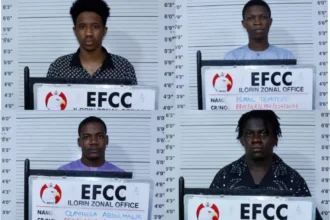Over 41 Civil Society Organizations, CSOs have called on the Federal Government, the National Assembly and relevant anti-corruption agencies to institute and enforce appropriate sanctions against State Governors who continue to violate the financial autonomy of Local Governments.
The CSOs expressed concern that the actions of some Governors not only threaten the fight against corruption but also undermine the autonomy of Local Governments, a key pillar of grassroots democracy.
They noted that recent legal challenges by these Governors represent a blatant disregard for the rule of law and are aimed at hindering the progress Nigeria has made in holding public officials accountable.
The CSOs include the Africa Network for Environment and Economic Justice, ANEEJ, African Centre for Leadership, Strategy and Development, Centre LSD, African Centre for Media and Information Literacy, AFRICMIL, Amnesty International Nigeria, BudgIT Foundation, and several other organizations dedicated to transparency and good governance.
During a press conference in Abuja, the Executive Director of the Civil Society Legislative Advocacy Centre, CISLAC, Auwal Ibrahim Musa (Rafsanjani), condemned the recent actions of certain State Governors targeting the Economic and Financial Crimes Commission, EFCC, Nigerian Financial Intelligence Unit, NFIU and other anti-corruption agencies.
He highlighted the suit reportedly filed by 16 Governors at the Supreme Court, seeking to declare the EFCC and NFIU illegal and strip them of their powers at the State level.
“These governors, under the guise of legal technicalities, are challenging the legality of the EFCC, a body that has effectively operated for over 20 years under Nigerian law. Their actions not only undermine the fight against corruption but also send a dangerous message that accountability can be subverted for political gain,” Rafsanjani said.
The consolidated suit, scheduled for hearing on October 22, 2024, seeks a declaration that the Federal Government, through the EFCC and NFIU, lacks the authority to issue directives or investigate State or Local Government funds.
The Governors argue that the EFCC Act did not receive concurrence from state Houses of Assembly, citing Section 12 of the 1999 Constitution, which pertains to treaties.
However, Rafsanjani emphasized that the EFCC Act was not a treaty but a Nigerian law aimed at combating corruption.
He also warned of the international consequences of this action, stating that it could lead to Nigeria being blacklisted by the Financial Action Task Force, FATF, which has already grey-listed the country for non-cooperation in the global fight against money laundering.
He further noted that the financial autonomy of local governments, reaffirmed by a recent Supreme Court ruling, is critical to promoting grassroots development and providing essential services.
However, despite the clear constitutional and judicial mandate, some Governors continue to interfere with Local Government finances, introducing bills to circumvent the court’s judgment.
The CSOs condemned these attempts to weaken anti-corruption agencies and urged the Federal Government to strengthen bodies like the EFCC, ICPC, and CCB by ensuring their independence and providing necessary resources.
They called on all Arms of Government, including the Judiciary and National Assembly, to join the fight against corruption for the benefit of all Nigerians.
Samson Itodo, Executive Director of YIAGA Africa, added, “A nation without accountability is on the path to moral and economic decay. We must all stand united in defending the work of the EFCC, ICPC, and other agencies tasked with safeguarding public funds.”
The CSOs urged Nigerian citizens to remain vigilant and continue holding public officials accountable, while resisting any attempts to weaken the institutions that safeguard democracy and the rule of law.









